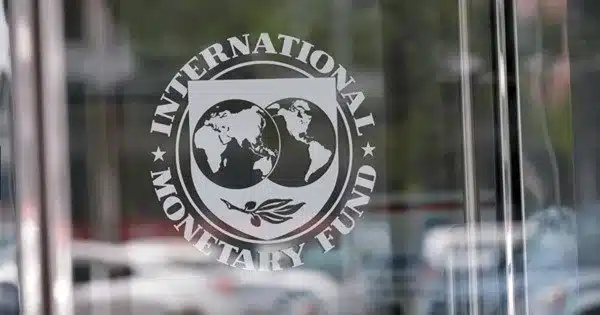The International Monetary Fund (IMF) is a significant United Nations financial agency and an international financial institution with 190 member countries, headquartered in Washington, D.C. It is an international organization designed to promote global monetary cooperation, financial stability, international trade facilitation, high employment and sustainable economic growth, and poverty reduction worldwide.
It is recognized as the world’s last resort lender to national governments, as well as a prominent backer of exchange-rate stability. It advertises that it is “working to foster global monetary cooperation, secure financial stability, facilitate international trade, promote high employment and sustainable economic growth, and reduce poverty around the world.”
The International Monetary Fund (IMF) was established in 1944 at the United Nations Monetary and Financial Conference, often known as the Bretton Woods Conference, which was held in Bretton Woods, New Hampshire, USA. It was founded on December 27, 1945, during the Bretton Woods Conference, based on the ideas of Harry Dexter White and John Maynard Keynes, with the purpose of rebuilding the world monetary system following World War II.
The IMF has several key functions:
- Surveillance: The IMF analyzes its member countries’ economic and financial trends and provides policy advice to promote stability and growth. It assesses the global and regional economy on a regular basis.
- Financial Assistance: The IMF provides financial assistance to member nations experiencing balance-of-payments challenges, assisting them in stabilizing their economies and resuming growth. This assistance is frequently accompanied by conditions or policy proposals to address the underlying causes of the problems.
- Technical Assistance and Capacity Development: The IMF provides member nations with technical support and training to help them enhance their institutions, policies, and capacity to run their economies efficiently.
- Research and Analysis: The IMF conducts economic research and analysis, publishes reports and studies, and provides economic data and forecasts. Its research helps shape global economic policies.
- Financial Stability: The IMF contributes to global financial stability by monitoring the health of the global financial system, detecting weaknesses, and advocating risk-reduction initiatives.
The IMF has 190+ member countries, making it one of the most powerful international organizations in the world. The financial contribution made by each member to the IMF, known as its “quota,” influences its voting power and access to IMF resources. The IMF is governed by a board of governors and an executive board appointed by its member countries.
It now plays a critical role in managing balance-of-payments problems and worldwide financial crises. Countries contribute monies to a pool from which they can borrow if they have balance-of-payments problems using a quota system. The fund had SDR 477 billion (about US$667 billion) in assets as of 2016.
The IMF has played an important role in handling financial crises, promoting economic stability, and assisting member nations with economic development. However, it has encountered criticism and controversy for the terms of its financial aid programs and policy suggestions, which have been viewed as unduly restricted or one-size-fits-all at times.
















